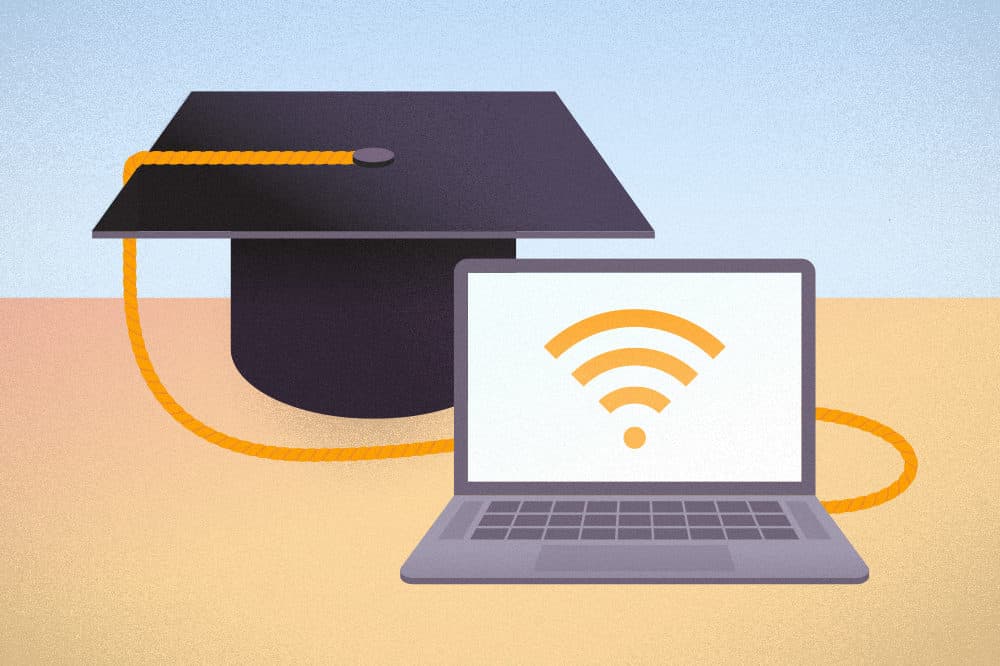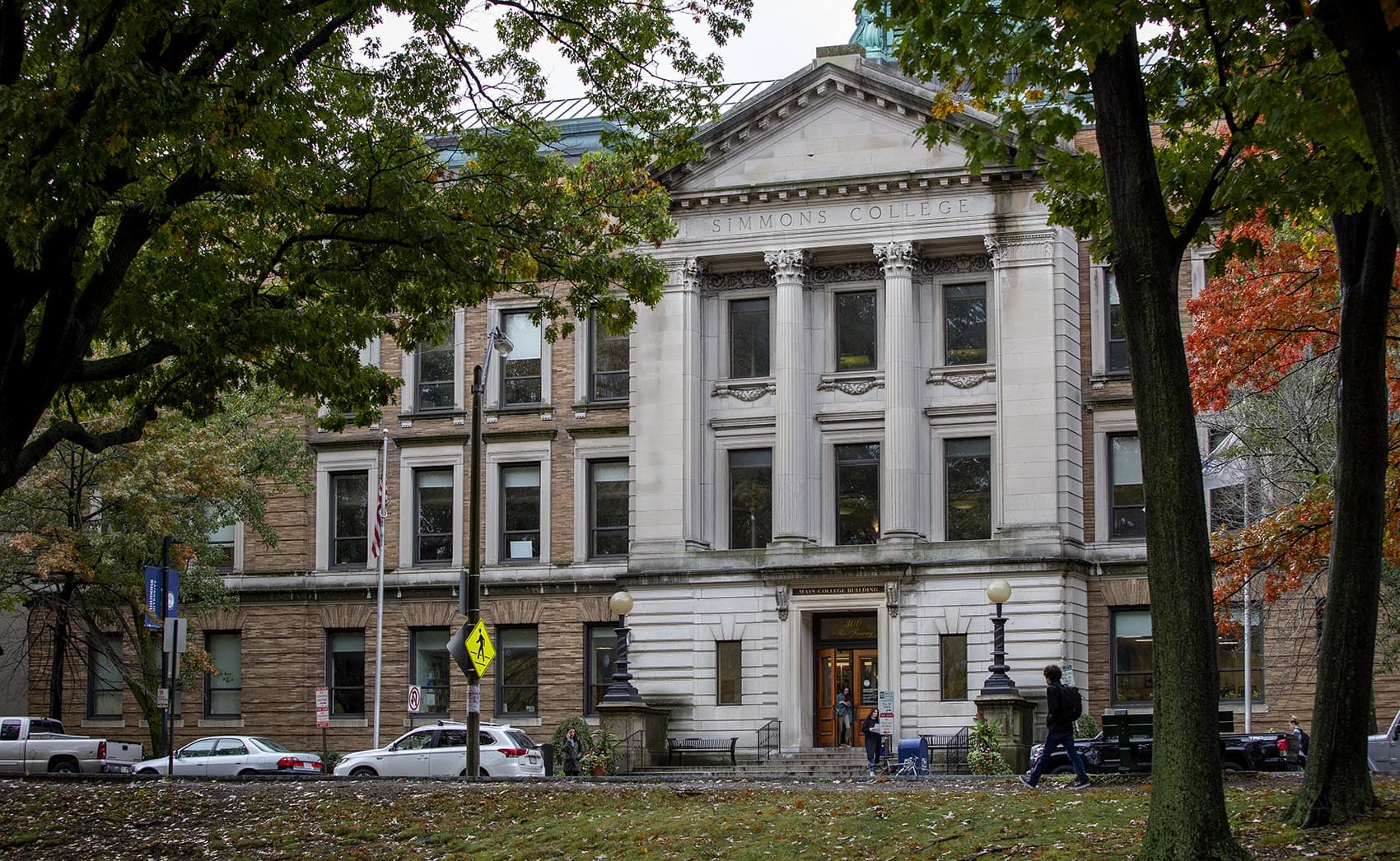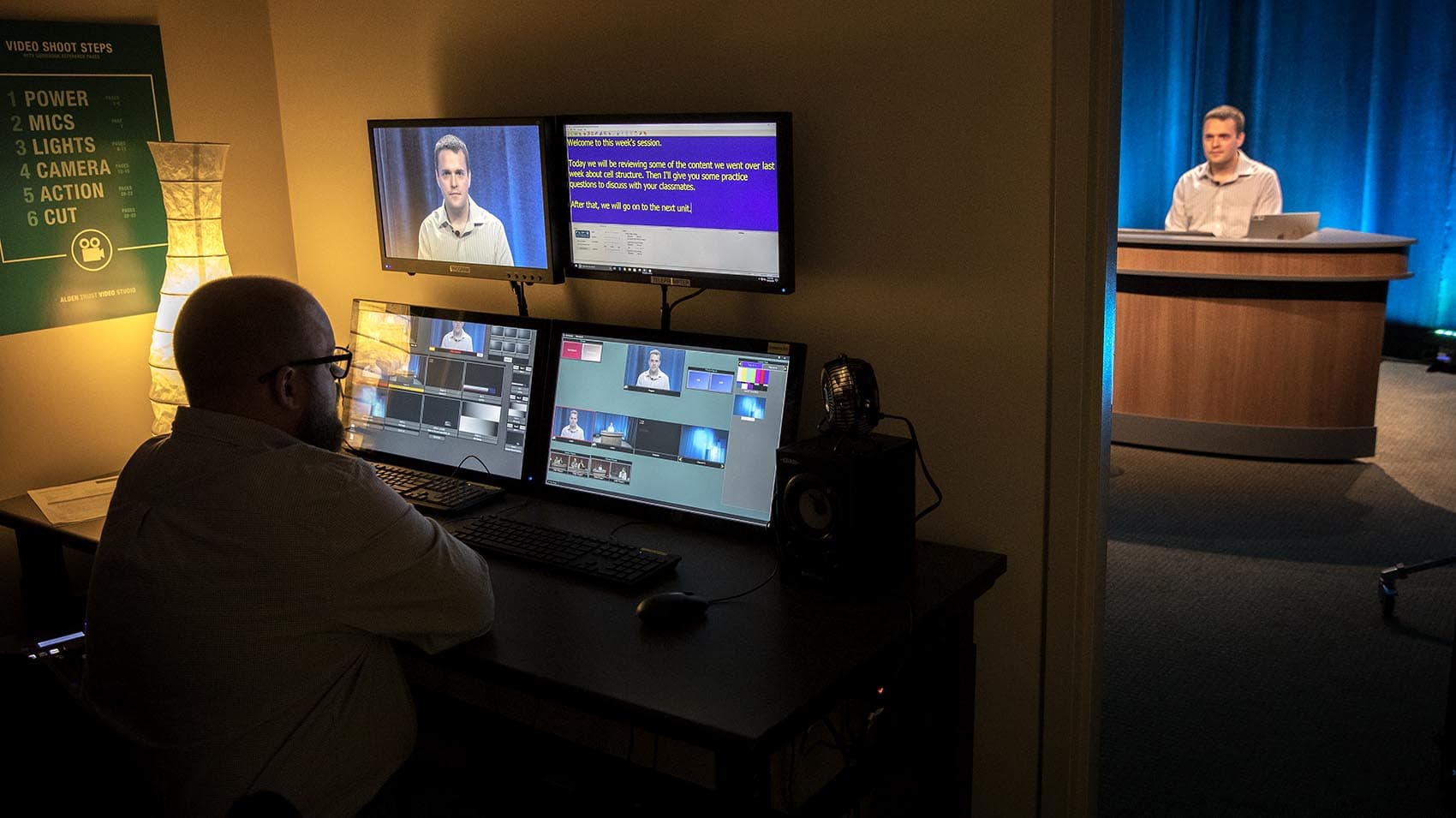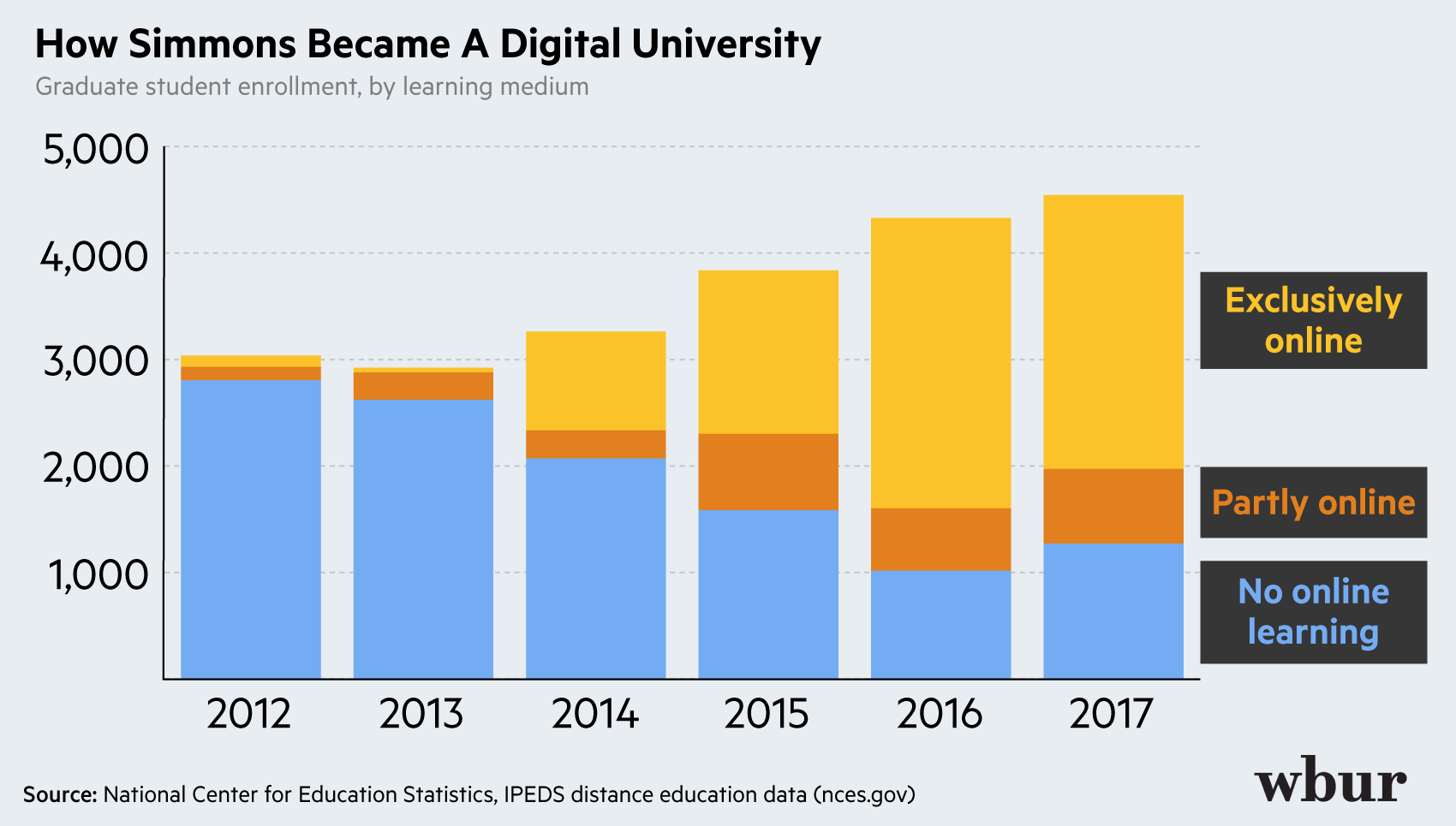Advertisement
Small Colleges, Big Challenges
When Campus Is A Computer Screen: How One Small School Found Financial Success Online
Resume
Part 5 in a series.
The Great Recession was hard for a lot of colleges. Simmons University in Boston was no exception.
"It was July 1, 2008. We didn’t have enough money and cash was practically at zero," Helen Drinan recalls of her first day as president.
Drinan says things got so bad the school had to lay off 72 people, and at one point they had to take out a loan to pay staff when cash ran short.

It was kind of a perfect storm. Simmons was in the middle of a big construction project when Lehman Brothers, the school's investment banker, went belly up. That left the school scrambling to find a new source of financing. On top of that, enrollment was falling. To fill seats, the school began loosening its admissions standards.
"We had students here with an average SAT score of 1000," remembers Drinan. "That’s not good for a women’s college. That’s not good for a small college."
So that got Drinan thinking about anything they could try to boost enrollment. She felt like the school had tapped out the market in New England. But then it dawned on her. If Simmons took some of its degrees online, physical boundaries would be less of an issue.
In 2011, Simmons launched its first online degree. Drinan says they quickly realized they didn't have the resources to fully support the program and give students a quality experience.
But, in 2014, Simmons, decided that despite those earlier issues, the school would take an even bigger leap. It offered its nursing master's degree — one of its most popular and well-regarded programs — online. This time, the school partnered with a company to run the programs, called 2U. Drinan describes that move as a resounding success.
Today, the school offers seven master's degrees and one doctoral degree fully online. More than 2,500 students are enrolled.

"When I was looking to go to school I knew I needed to find an online program," says Sheree Stachura, a recent graduate of Simmons' nursing master's program. Stachura lives in Buckley, Illinois, and going to a brick-and-mortar school was out of the question. The closest one was a 45-minute drive away, and that commute wouldn't have allowed her to work full-time.
But she adds, convenience aside, what really sealed the deal for her was the fact that Simmons' nursing program has a very high passing rate for the nursing boards. It consistently hovers around 90%.
That view is music to the ears of Drinan. She explains that when school leaders began their online push in earnest back in 2014, they strategically chose the most well-regarded graduate degrees hoping that would give them an edge.
That logic turned out to be right. Today, the school’s largest source of revenue comes from online learners, growing in a span of four years from $4 million to about $80 million in 2018.

That extra cash also has allowed the school to be more selective in its undergraduate admissions again. The average freshman now comes in with an SAT score closer to 1200. But Drinan will be the first to admit that going online isn’t a panacea.
Offering a quality degree program on the web isn’t cheap. About 60% of every tuition dollar goes to that online program manager, 2U. But, according to Drinan, that's still a fair price considering how much they do. Companies like 2U essentially run the back-end of a school's online courses, including technology, marketing and even some student support.
"It's just economically wonderful for Simmons because it essentially was a capital infusion," says Drinan. "We didn't have that capital to invest in technology marketing and student support and they supply it to us."
Today, the world of online higher education is a crowded space. For-profit colleges and large non-profit universities dominate most of the market. Competition is also pretty fierce among companies like 2U. To distinguish themselves, some online program managers offer schools more payment options beyond the tuition sharing model like the one 2U has with Simmons. And others are expanding the types of degrees they offer, including one-off courses and certificate programs.
But economists say there is still room to grow in this learning format. A recent Moody's Investor Service report classifies online higher education as "credit positive" because the online delivery essentially breaks down geographic boundaries, which in theory means more potential enrollment opportunities.
Small, relatively selective schools are also still considered a niche market in the online sector. But some economists warn that finding success online is by no means easy.
"I think it’s a little naive to think that this will be a very easy way of reaching a lot more students," says Caroline Hoxby, an economist with Stanford University. "It’s not that you can’t do it, but you’re competing with a bunch of firms that are already doing that."
Simmons was among the first small colleges to make the leap online. Which is why Drinan adds that another key to her school's success, just like many things in life, was good timing and a little bit of luck.
Do you have questions about small private colleges in Massachusetts? Fill out the form below:
Illustration by Chris Cerrato for WBUR.
This segment aired on October 24, 2019.

